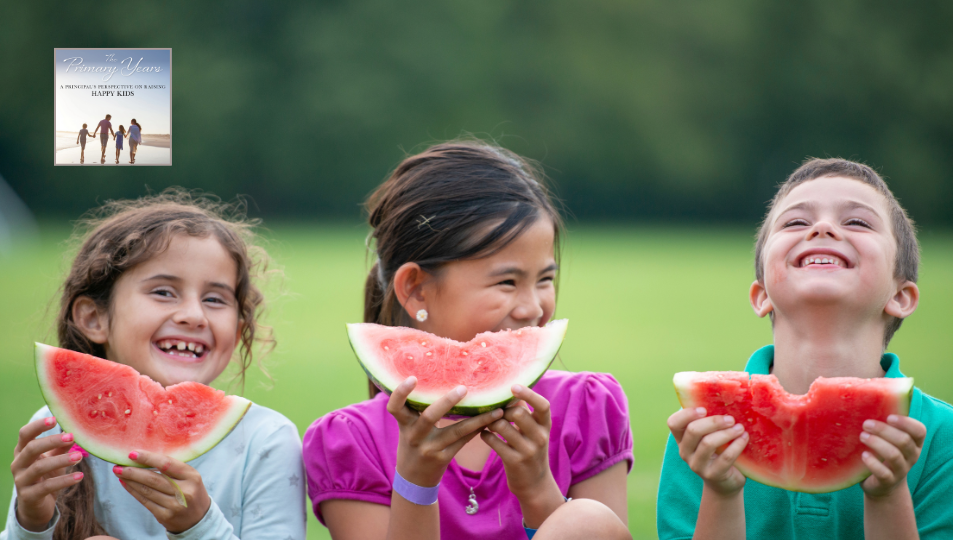
Growing Big Hearts: Teaching Children Generosity and Compassion
As parents, the way we show compassion in everyday moments helps shape emotionally strong and caring kids. Gail Smith shares simple ways to nurture generosity at home, where small acts can leave a big impact.

Encourage a Wide Net of Friends: Why It Matters.
Friendships are key to a child’s happiness, but relying on just one best friend can lead to heartbreak. Gail Smith highlights why encouraging kids to embrace new friendships is so important.

Helping Your Child Navigate Friendships and Challenges
Navigating friendships, forming them, losing them, and finding new ones is a natural part of childhood and essential for social and emotional growth. Here are five impactful ways parents can guide their children in fostering strong, healthy friendships and overcoming the challenges that come with them.

A happy child is on the way to developing good mental health
Helping children develop good mental health starts with teaching them the value of positivity and optimism. Gail Smith highlights five key reasons why keeping kids happy plays a crucial role in their mental well-being. Keep reading to learn more about the benefits of nurturing happiness in your child’s life.

Keep yourself well and healthy as a parent
As parents, it's easy to focus solely on our children's well-being and overlook our own. However, maintaining our own mental and physical health is crucial for effective parenting. Gail Smith explains how prioritizing self-care enhances our ability to be the best parents we can be. Keep your well-being at the forefront to savor the joys of parenting.

Developing good mental health in your child
Building a strong foundation for your child's mental health starts with ensuring they feel safe and happy. Discover practical tips to nurture their well-being during those crucial early years. Gail Smith shares some suggestions to help your child thrive emotionally and mentally.

What brings joy to you and your child?
The more we share joy with our children, the deeper and richer connection we make with them. Sharing joy triggers a host of significant physiological and psychological changes that improve our physical and mental health. Gail Smith shares some examples of what brings joy to your child.

Six mini moments of joy and care to your child
Six ideas for giving mini moments of support and encouragement to your child.

Crazy ideas to lighten the load and make a child’s feeling of school a happy one
Read the following blog for fun ideas that can brighten the week for everyone.

Time to remind yourself that being a parent is a wonderful experience
A reminder to cherish the wonders of being a parent.

Nine Proactive Strategies for Fostering Mental Health in Children
Here are nine ways to foster and sustain your child’s mental health and well-being.

Keeping perspective on what is important
Time goes so quickly with children, here are a few reminders to cherish the smaller moments.

Learn to have some fun
Laughter and fun are the key ingredients for a happy, healthy life. Read more for some ways you and your child can have fun!

Learning about being responsible
Responsibility is a part of our makeup and challenges us throughout life. Here are some parenting tips to positively introduce responsibility to your child.

Keep smiling it works!
Children's smiles are their greatest gift. Here are some parenting tips that can assist and remind you of the power of positivity and smiling through life.

The art of bringing happiness to your child
A happy child is one that feels secure and has strong supports around them that intelligently allow the child to grow in an environment that is open, engaging and inclusive. As parents we try our best and the human side of us sometimes fails to hit the right mark. Here’s some tips to help bring happiness to your child - sometimes, in these stressful days, it’s important to help build a child’s level of happiness.

Enjoy the present - it’s here for you now to enjoy
Happiness can be found in all of the smaller moments in life. You just have to stop for a moment and enjoy the present.

What will your child remember about you?
What do our children really think about us? Are they aware of all our efforts? Do they remember the little details and the extra efforts we make over the years? What is their level of appreciation of us the parents?